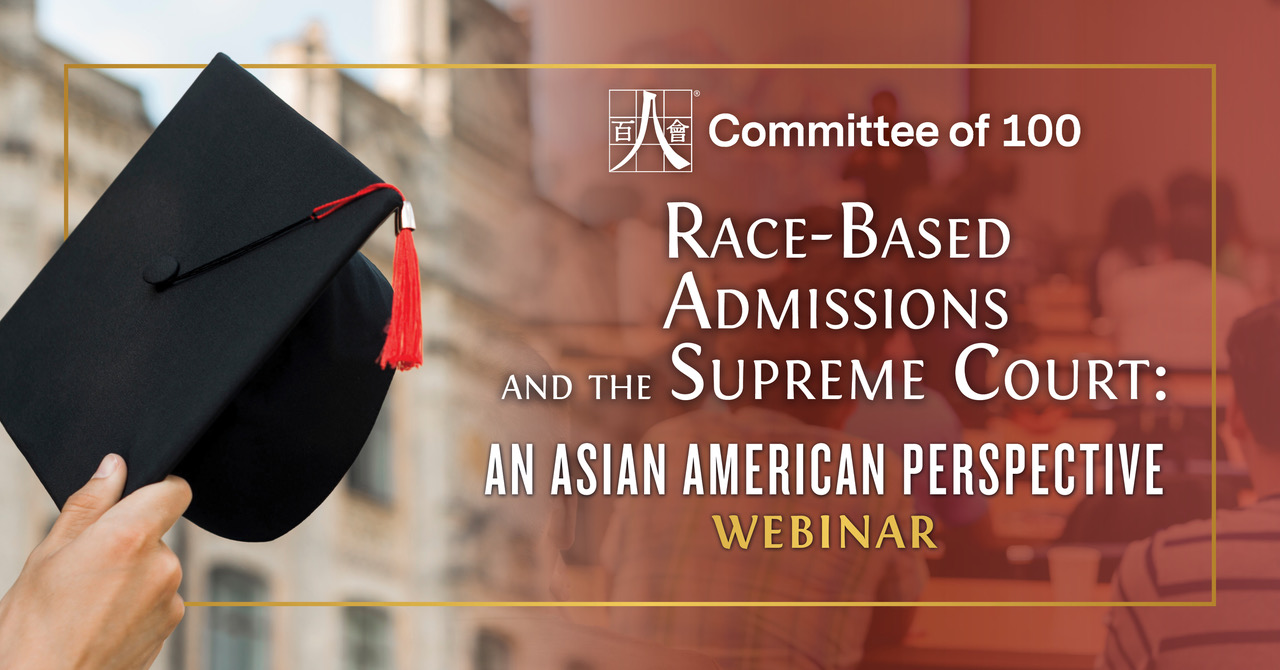
In late June, the U.S. Supreme Court issued its ruling in two high-profile cases on race-conscious college and university admissions policies. This is the third time in the last two decades that the nation’s highest court has heard cases that challenge long-standing attempts to increase diversity on college campuses. The Court’s finding that these policies are unconstitutional will have significant implications on the Asian American community, including how Asian American students should prepare for the college application process.
On Thursday, October 12, from 2:00pm – 3:00pm Eastern Time, Committee of 100 convened a discussion with experts from academia, law, and the media. Amy Qin, National Correspondent for The New York Times, will be the moderator. Panelists include Gordon H. Chang, the Olive H. Palmer Professor in Humanities at Stanford University; John C. Yang, President and Executive Director of Asian Americans Advancing Justice (AAJC); and Sally Chen, Education Equity Policy Manager at Chinese for Affirmative Action (CAA).
This panel discussed various aspects of the historical context surrounding affirmative action, why affirmative action is relevant to the Asian American community, and what the specific case law means for Asian Americans today.